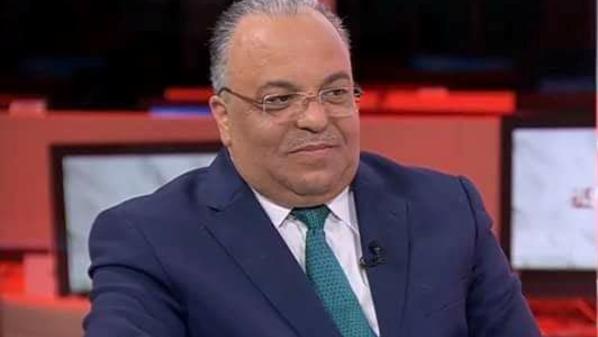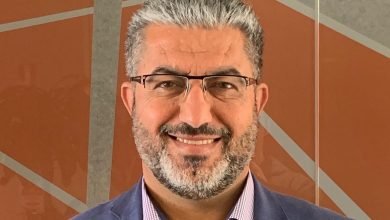
By : Dr. Monther Howarat
Jordan Daily – The recent decision by the U.S. to suspend aid to Jordan for 90 days, part of a broader freeze affecting several nations, is both disappointing and perplexing. Egypt and Israel, notably, were exempted from this pause.
The aid package in question was originally conceived as a way to encourage regional peace and economic stability, with Jordan playing a pivotal role. For decades, successive U.S. administrations have recognized the kingdom’s strategic importance, both as an anchor of regional security and as a committed partner in the global fight against terrorism. From battling Al-Qaeda to countering ISIS, Jordan’s efforts have directly supported U.S. interests in the region, a contribution further underscored by the presence of American military bases on Jordanian soil.
Yet, this latest move by the U.S. administration undermines the deep-rooted partnership between the two countries. While the aid suspension is framed as a review period to assess alignment with U.S. objectives, it signals a troubling shift. Though the aid is expected to be reinstated after the review, the temporary halt feels less like a recalibration and more like an ill-advised attempt at political leverage- a strategy that could harm Jordan’s regional standing and its critical role in maintaining stability. More concerningly, it suggests a diminished capacity for Jordan to influence the current U.S. administration through traditional diplomatic means.
This raises an important question: does Jordan possess the leverage to influence U.S. institutions, including the current administration, in a more forceful way? Admittedly, the power imbalance between the two countries limits Jordan’s ability to exert direct pressure. But Jordan’s active engagement in regional security issues grants it significant indirect leverage.
The kingdom is deeply involved in managing crises such as the Syrian refugee influx and the broader fight against extremism. Jordan’s longstanding commitment to peace in the Middle East has helped it foster strong relationships, not only with its regional neighbors but also with global institutions and international organizations. Furthermore, the U.S. military presence in Jordan is not just a favor to Amman- it serves American strategic interests, protecting U.S. assets and providing a critical foothold in a volatile region.
To borrow from the transactional worldview of President Donald Trump, American interests in Jordan should not come free of charge. U.S. bases, like the one near the Rukban refugee camp, are a testament to Jordan’s critical role in safeguarding American and regional security. The United States, in other words, benefits from its relationship with Jordan just as much, if not more, than Jordan does. But should Jordan respond to this aid freeze with retaliatory steps, or would it be wiser to adopt a wait-and-see approach?
In an era marked by shifting geopolitical alliances, it would be unwise for Jordan to pursue drastic actions. The world is transitioning away from the old paradigm of globalization toward a more fragmented, multipolar reality driven by geopolitical competition. The U.S. is unlikely to tolerate any vacuum in Jordan, a critical partner in its broader regional strategy. This gives Jordan the opportunity to use the aid suspension as leverage in negotiations, potentially securing more favorable terms for the continued presence of U.S. military forces on its soil. It also opens the door to reframe the aid relationship as a long-term commitment, less subject to the whims of changing administrations. Jordan can capitalize on this moment by demonstrating that its contributions to regional security are indispensable to U.S. strategic interests.
At the same time, Jordan must tread carefully. This is a high-stakes game that requires deft diplomatic maneuvering. While the kingdom might explore the idea of using leverage in a more transactional way- much like Trump’s “art of the deal” approach- it seems unlikely that Jordan would go down this path.
Jordan has firmly aligned itself with the Western world, and drastic moves that challenge the status quo are risky. Instead, Jordan will likely rely on its well-established network of soft power to influence the U.S. decision-making process. This includes reaching out to sympathetic voices within the U.S. political system-lawmakers, think tanks, and former officials who understand the kingdom’s vital role in promoting peace and stability. Jordan could also lean on its allies in the Arab world, such as Saudi Arabia, Egypt, and the UAE, to advocate on its behalf with the U.S. administration.
The inclusion of Jordan in this aid review, however, seems less about evaluating past agreements and more about sending a message- one tied to future geopolitical projects in which Washington expects Jordan to play a role. King Abdullah II hinted at this possibility when he remarked that Jordan “will not risk its future,” signaling a clear understanding of where U.S.-Jordan relations might be heading under current U.S. leadership.
It’s time for Jordan to adopt a more assertive stance in its relationship with the U.S. Parliament could take the lead by initiating a comprehensive review of all U.S.-Jordan agreements. This move would not only signal Jordan’s dissatisfaction with the aid freeze but would also remind Washington that Jordan, too, has the right to review its partnerships. Despite the power imbalance, Jordan has provided enormous services to protect U.S. security, and it should not shy away from reminding the world of that fact.
In the end, the U.S. cannot afford to treat Jordan as a mere cog in its broader regional strategy. Jordan is more than just a partner; it is a cornerstone of stability in the Middle East.

